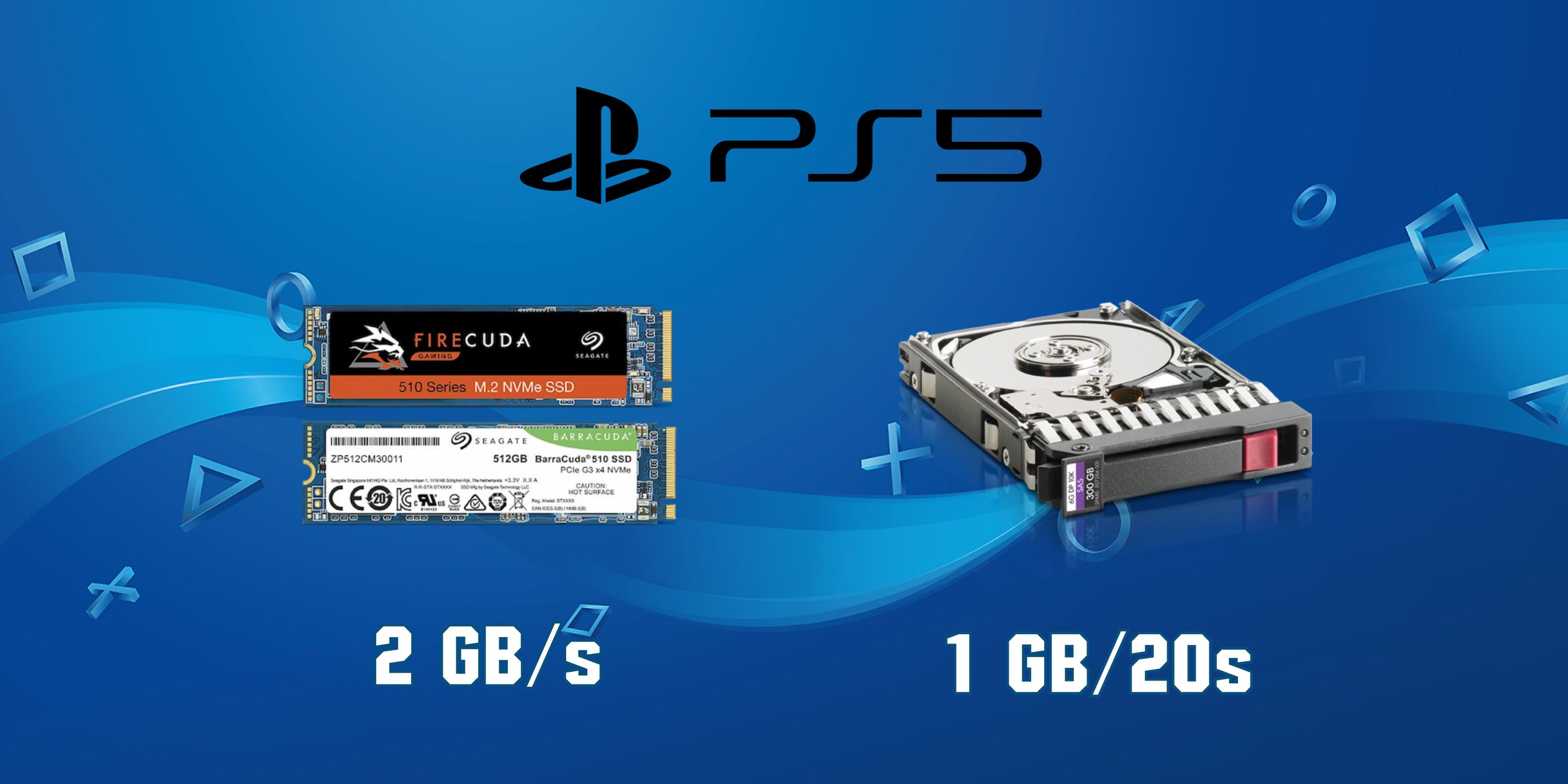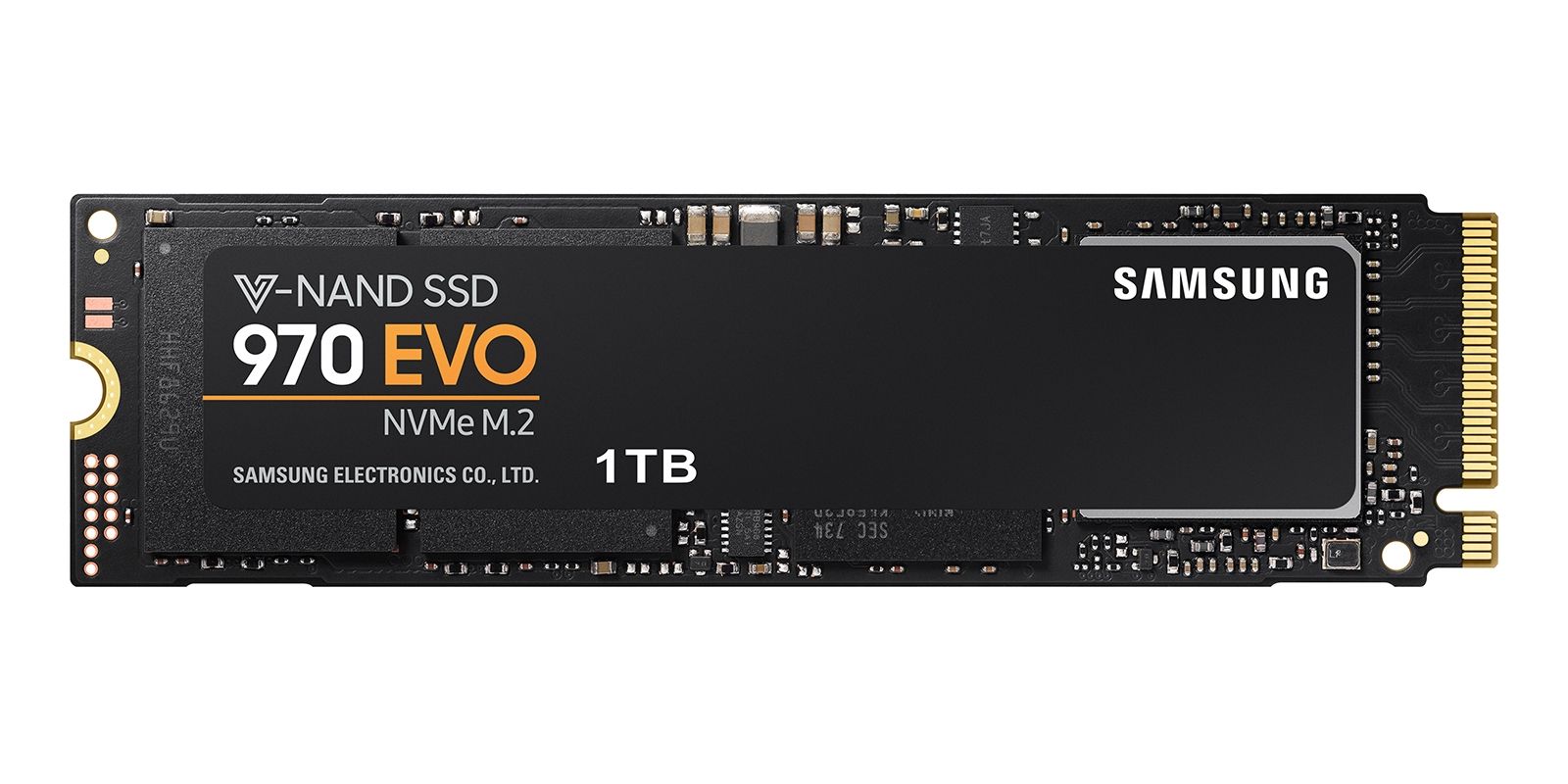With the PlayStation 5 "deep dive" reveal in the books, we finally have specifics about what the new console's SSD does for the next generation, and why it's such a significant improvement from the PS4. SSD's are often touted as the future of gaming and, to PC players, they're considered a necessity. Sony, however, looks to push those advantages into a realm we've never seen, even on the most powerful PC hardware.
Solid state drives (SSD) are a better alternative to hard disk drives (HDD) because they have no moving parts and contain an on-board CPU. There's an immediately noticeable difference when using an SSD instead of an HDD that just about anyone who uses any PC or game console has experienced, and that's sound. Before any cooling fans kick in, the whirring sound produced when an HDD spins in a game console or most PCs is such a common thing, most people barely think twice about it. Solid state storage is silent, so powering on a PlayStation 5 or an Xbox Series X will be about as loud as unlocking a smartphone (until the fans start up).
However, the primary thing that has people buzzing about SSDs is speed. The addition of a CPU and the lack of an actual disk to read make SSDs many times faster than HDDs. Since PlayStation 4 used a hard drive and not an SSD, PS5 will already be significantly faster than the previous system. But there's more to the importance of the PlayStation 5 SSD than just how it stacks up to a hard drive. There's a good chance that, by launch, PS5 will have the most advanced SSD on the market.
What Makes the PlayStation 5 SSD So Special
The talk about the next-gen consoles is focused on how SSDs will shorten load times. That's absolutely true, but with PS5, shortening load times is just the tip of the iceberg. The combination of PS5's main processor and its insanely fast SSD could potentially eliminate load times entirely. With an SSD read speed of over 5.5 GB per second, PlayStation 5 games can boot up in less than a second. For players, this speed means less down time and waiting around, and that's an attractive prospect, but that alone doesn't change anything about the games themselves.
This is where Sony's ideas for the PS5 SSD lean in the direction of changing how games are made. Currently, when a game needs to pull data from its files to present an image to the player, it has to perform a "seek". This process takes multiple seconds, so rather than seek data when the game needs it, games will pool a chunk of data and hold on to that for a set amount of time just in case that data needs to be used. This, of course, means lots of data isn't used (data for the room on the left is useless if the player goes into the door on the right) but the developers still had to either design a way to hide that data seek from the player or otherwise slow the player's movement down as the data was pulled.
PlayStation 5's SSD has a read speed of more than 5.5 GB per second, so this becomes a non-issue. With a speed that absurdly fast, anything the game needs to pull up can be pulled the second the game needs it. Things we're used to in games like fading to black before cutscenes, narrow corridors between large areas, long elevator rides, and fast travel animations will be unnecessary because the game is never more than one second away from any files it might need. That speed opens the door for things like open-world games in which the player can see inside of every building without entering, or, in level-based games, eliminating the boundaries between areas. The switch to an SSD will make games we already know load faster. However, the switch to an SSD with this level of speed, on a system with optimized data retrieval, will allow PlayStation 5 to change how video games are made.
PlayStation 5 is scheduled to launch in Fall 2020.


